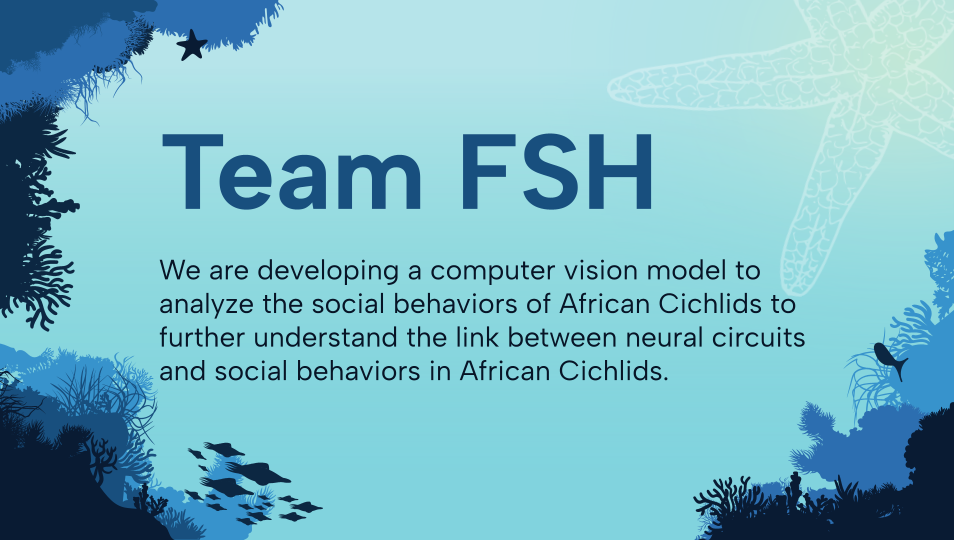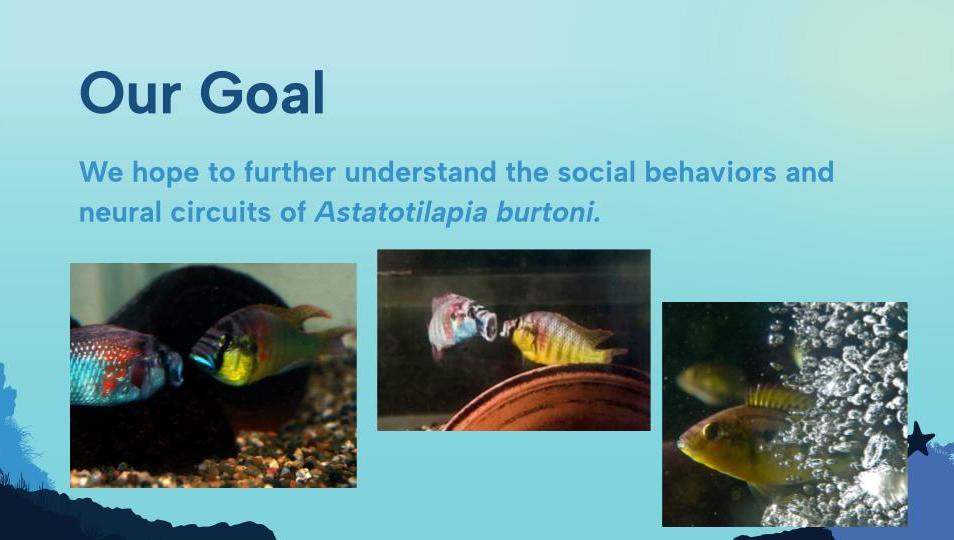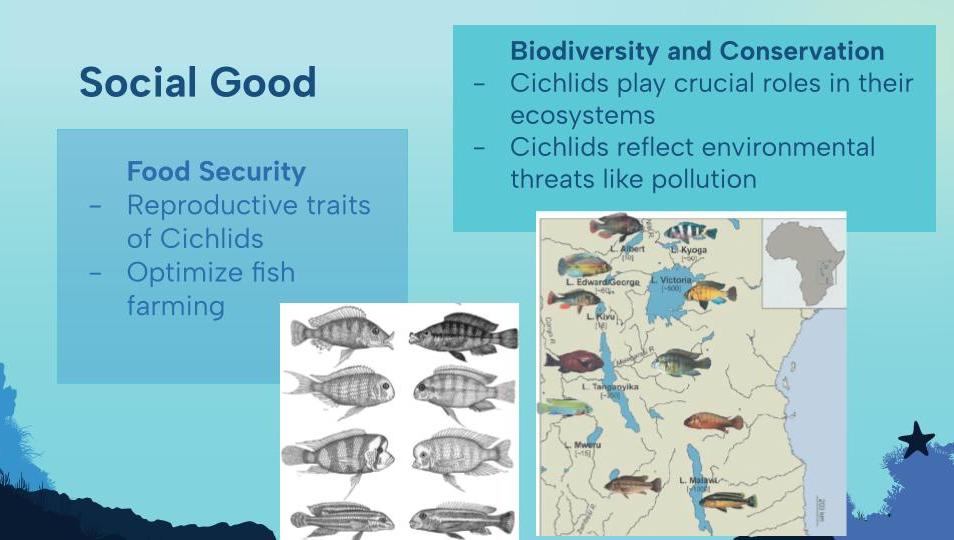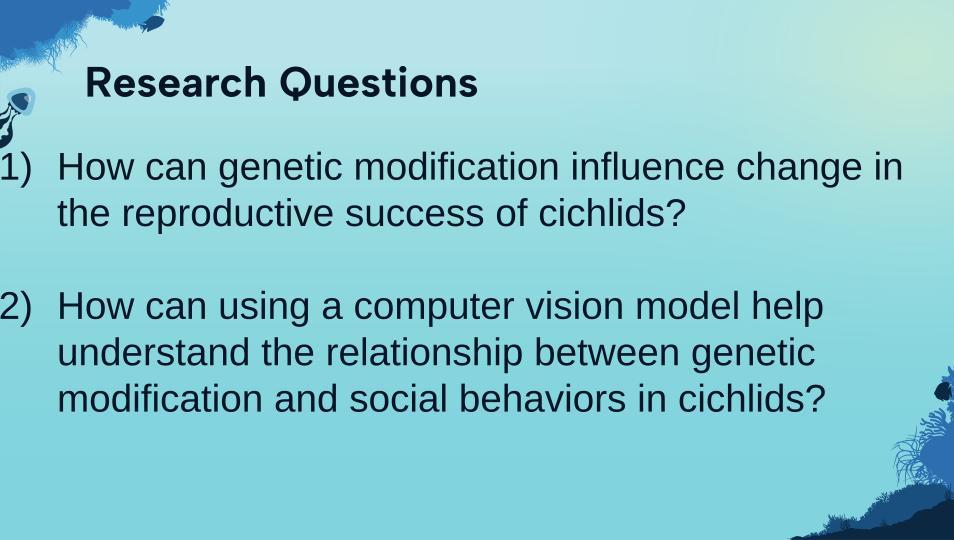Welcome! We are Team FSH!
Introduction: Food insecurity is the state of not having reliable access to affordable, nutritious and adequate food. Currently in the United States, 47 million people, including 14 million children experience food insecurity annually. Cichlids, or more specifically Astatotilapia burtoni play crucial roles in their ecosystems. Our goal is to study the reproductive traits of cichlids in order to optimize fish farming and increase food security.
About Us: We are Team FSH, a group of students in the Gemstone Honors Program at the University of Maryland, College Park. Our project consists of two main parts: computer vision and biology. Using computer vision algorithms we hope to quantify reproductive behavior and determine how we can use these differences in behavior to help other researchers accelerate their own studies and allow fish farmers to be more productive in farming fish for food related purposes. The biological part hopes to utilize CRISPR-Cas9 in order to test variables against reproductive success and determine which genes play a significant role.
Timeline: 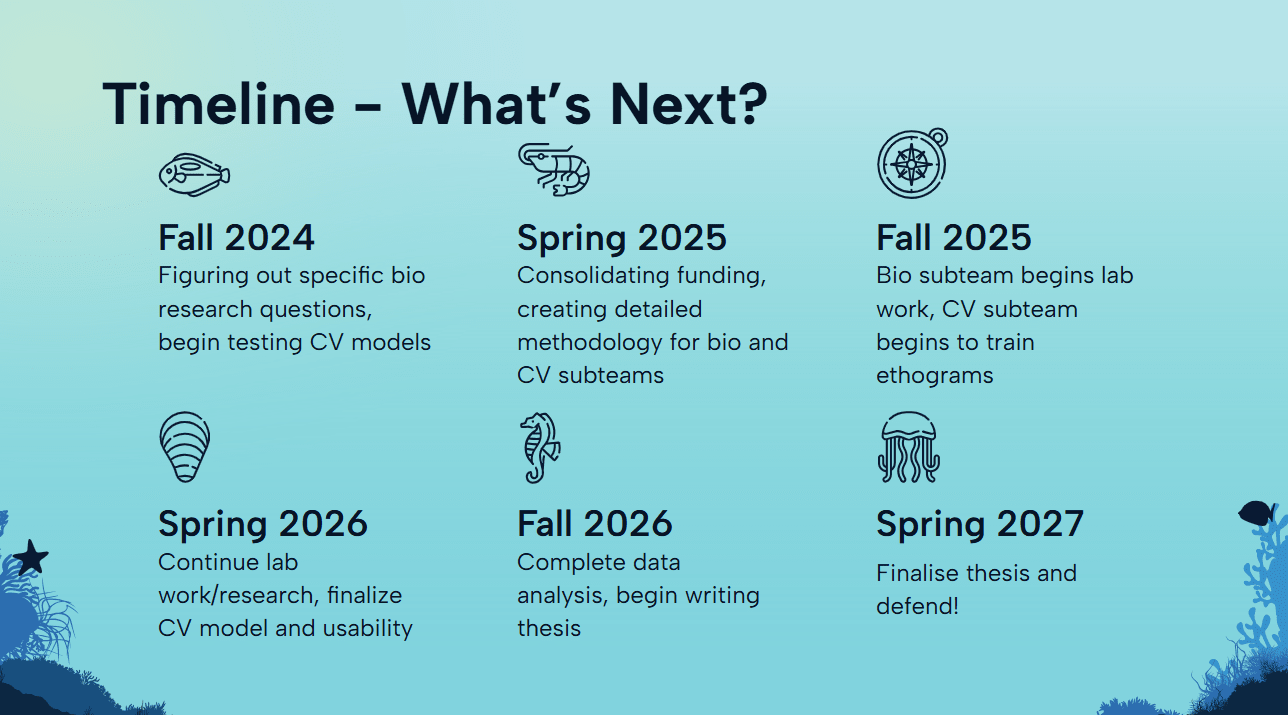
Plans: We hope to develop new computer vision models to study behavior of cichlids in order to increase food security. We plan to use the funds we raise to increase our computing power and buy laboratory materials and supplies for CRISPR. By donating to our campaign, you can help support our research and increase food security for millions of people around the United States.
Gifts in support of the University of Maryland are accepted and managed by the University of Maryland College Park Foundation, Inc., an affiliated 501(c)(3) organization authorized by the Board of Regents. Contributions to the University of Maryland are tax deductible as allowed by law. Please see your tax advisor for details.

